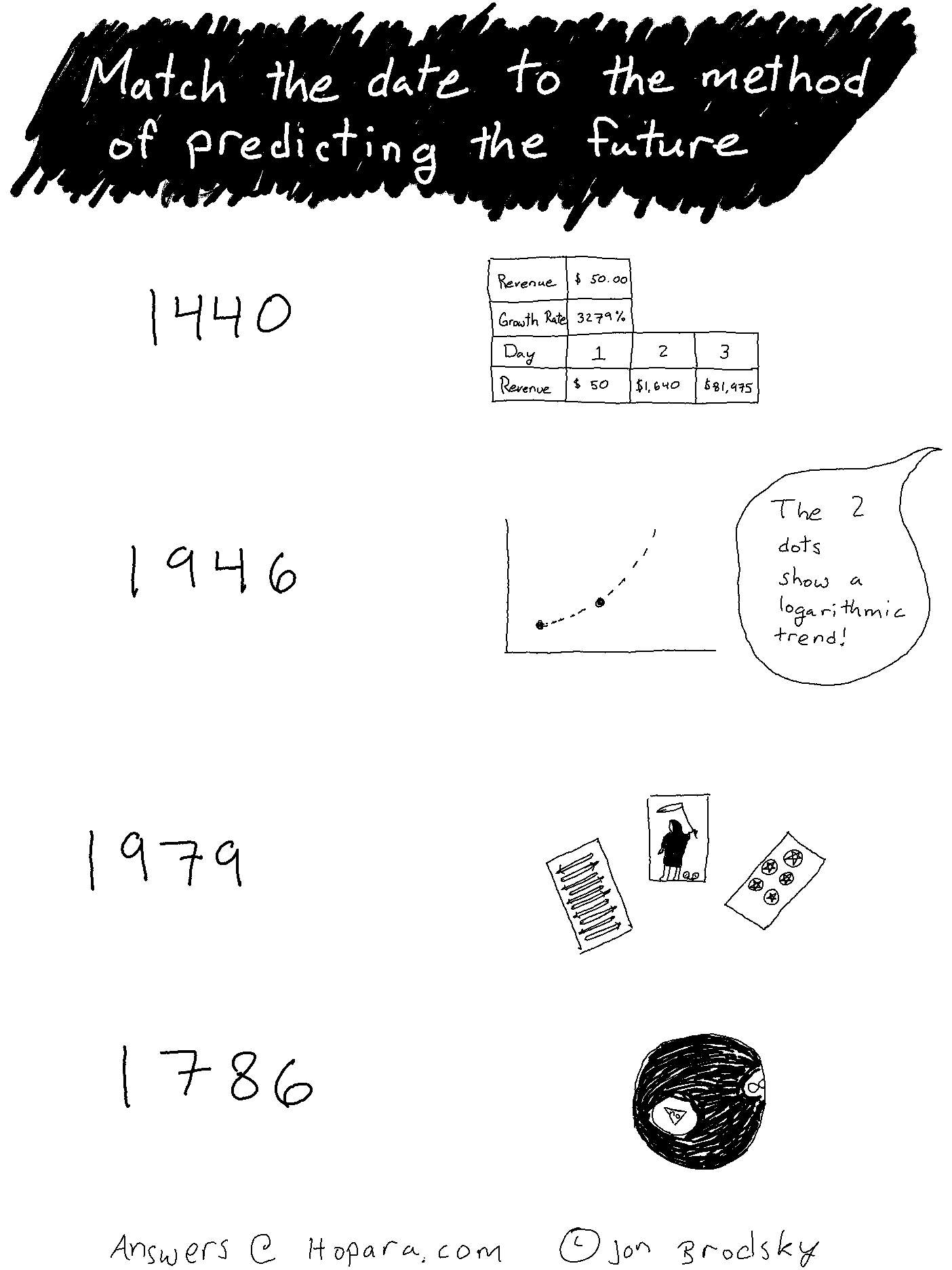Predicting the future
The bane of their existence is telling investors why their idea is going to work three years from now. No one asks Coca-Cola why people are going to keep drinking sugary death water in three years; if you're unproven, you're stuck answering that question.
They all have really good reasons for why their future looks bright. They may be wrong, but at least they have well-thought-out reasons (in general. Some of them are just flat-0ut crazy). Those reasons are what sell investors, and then the founders have to take the next step, which is make a financial model that shows how much money they'll make, and how much they'll need to get there.
This is where it gets a little crazy, because you can't figure that stuff out in advance. At best, as a start-up, you might know what your next six months of expenses look like before you know you're going to hit a wall, and you have no idea what your revenue will be. You have aspirations. Those are a far cry from actual projections or predictions, though.
By the way, I don't blame investors for asking for financial projections. They're held accountable to the people who give them money, and so on. You need to have a reason for giving one company money over another, and you can't just say that you like the person the best. At least, I couldn't when I was an investor.
Then an investor will hold them accountable for those aspirations, which is what makes it stressful. It's fine when you're creating works of fiction that don't really matter, which includes most spreadsheets people come up with; it's entirely another thing to know that you don't know much, write that fiction and then be held to those impossible standards. I can't count the number of times I've made a prediction in spreadsheet form where I was told to make it bigger (which I did) and then was asked a year later why having that big prediction didn't motivate me to perform better.
Asking people to abide by something they know is a lie doesn't really encourage good behavior.
That's what today's doodle is about:

And, for those of you coming just for the answers, I'll give you a little space before I answer it all.
[INSERT SPACE HERE]
[ISN'T SPACE LOVELY?]
[OK, IT'S KIND OF EMPTY, COLD, AND FILLED WITH RADIATION]
Ok, here are the answers:
The first spreadsheet as we know it was invented in 1979 as VisiCalc, which was the main reason to buy an Apple computer at the time.
The magic 8 ball predates the spreadsheet by 33 years, coming to market in 1946.
The next two are a lot trickier, and surprised me. Charts as we know them were first published by William Playfair in 1786.
That leaves us with an approximate date for the first Tarot cards, which we think were first printed in Italy between 1440 - 1450. Note that there are claims of Tarot cards significantly pre-dating that (going back to Egyptian times) and if you were looking for the first mass-produced Tarot cards, you'd be in the late 1700s.
If I was trying to go further back in the divination time line, astrology dates back to around 300 BC, and other divination practices appear to go back as far as we've got a fossil record. So I suppose I shouldn't be so hard on investors, given that we've been trying to predict the future as long as we've been around.





